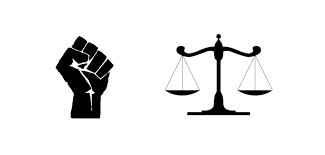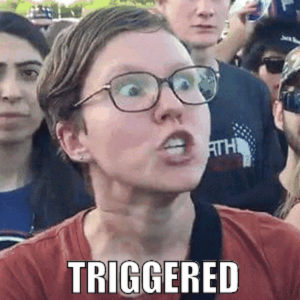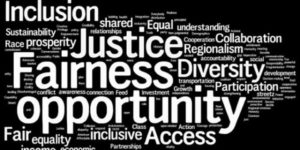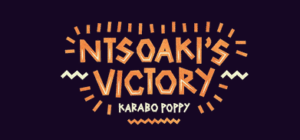
Redefining Activism And The Social Justice Warrior
If you consider yourself a true social justice warrior fighting against racism, fighting for LGBT rights, and fighting for equality for all, it’s time we start to define what that fight should actually look like. The Civil Rights Movement had key moments that came to definitive reminders of that movement, such as Rosa Parks refusing to move to the back of the bus, and the march on Selma. While these lasting images should be a stark reminder of our past, we need to remember that the gains of the civil rights movement were achieved through sophisticated networks of attorneys, community organizers, and local politicians. In today’s current political climate, there is a great deal of emotion and energy, but not enough organization and thought going into how to achieve the goals of the movement, especially at the local level.
Whether you are an activist consistently booked on the cable news networks or you’re a regular person that wants to have a positive impact, I believe there is a strategy that will yield better results than yelling obscenities and throwing things at those we see as oppressors or those with opposing views.
Check Your Emotions At The Door.
While our desire to help the less fortunate, or others in a similarly bad situation may cause frustration, rage, and anger, the movement will go nowhere if these emotions are allowed to control our actions. Whether it is on social media, a debate with a co-worker, or a debate on CNN, we must keep focused and level headed no matter what is thrown in our face. If we need to defend ourselves or our position, we have a responsibility to do so in the most effective manner possible which almost never requires using obscenities and screaming at someone. I firmly believe that for the movement to succeed it requires passion, but there is a thin line between passion and rage, and when passion jumps to rage, you get made into a meme and never taken seriously again. 
Have A Specific Purpose.
The idea of wanting equality for all is great, but in order to achieve that goal, it will have to be built brick by brick. Anytime there is a protest, march, or gathering, always ask yourself “what is the specific purpose of this event?”. While protesting for equality sounds good, if you don’t have a specific goal you want to accomplish, how do you expect to accomplish that goal? If you don’t have a way to accomplish that goal, who then gets to determine how to accomplish it or if it gets accomplished at all? No matter what group or issue you’re advocating for, these issues are all complex and nuanced which require some difficult conversations, questions and answers. If you don’t know the specific purpose of a protest or demonstration, be the person that starts the conversation and asks “what exactly are we trying to accomplish here today?”.
Know the System.
We often hear the talking point of “systemic oppression” or “systemic racism”, but not many of us can define that term or even define what the actual system is. If you can’t define it, you can’t effectively fight for it. The system is all around us, similar to the Matrix, but a little less techie and less leather.  The system is the courts, legislature, corporations, small businesses, local government, it’s everything that brings organization and structure to our society. This system has been built over the last two hundred plus years by many different architects with different visions for what it is supposed to look like. A structure like that will not be torn down or reshaped with protests, name calling, and hashtags. In order to effect the system we have to know it. We have to know how it works, what we have access to and how to use it. We have to recognize that not everything can be changed by the President or the Governor of your respective state. Often instead of protesting POTUS we should be looking at our local government. Can the problem be resolved by adding a measure to a ballot, or raising an issue with city council? Depending on how active the local community is, your issue may not receive a great deal of resistance or it may receive a great deal of push back and even media attention, which can spark debate which could lead to the necessary conversations and analysis that lead to change. The fight for equality will require change at all levels from the federal government down to small town ordinances, so it makes sense to start where you are and recognize we are all nimble enough to be able to fight on multiple fronts. Getting a local initiative through the local government does not preclude us from bigger picture issues on the national scale. In order to reshape the system to make it more equitable, the system must be infiltrated. It must be changed from the inside at the highest levels and the only way to achieve that is to have operatives in the system working on our behalf. Working in the system for the right causes is not selling out, it’s when the operatives forget why they are in the system, or who they are fighting for that we see them as sell outs. We can’t be afraid to put ourselves or people we know and trust in positions of power. There is too much to be gained and lost to not fight for a seat at the table and to have a voice at that table.
The system is the courts, legislature, corporations, small businesses, local government, it’s everything that brings organization and structure to our society. This system has been built over the last two hundred plus years by many different architects with different visions for what it is supposed to look like. A structure like that will not be torn down or reshaped with protests, name calling, and hashtags. In order to effect the system we have to know it. We have to know how it works, what we have access to and how to use it. We have to recognize that not everything can be changed by the President or the Governor of your respective state. Often instead of protesting POTUS we should be looking at our local government. Can the problem be resolved by adding a measure to a ballot, or raising an issue with city council? Depending on how active the local community is, your issue may not receive a great deal of resistance or it may receive a great deal of push back and even media attention, which can spark debate which could lead to the necessary conversations and analysis that lead to change. The fight for equality will require change at all levels from the federal government down to small town ordinances, so it makes sense to start where you are and recognize we are all nimble enough to be able to fight on multiple fronts. Getting a local initiative through the local government does not preclude us from bigger picture issues on the national scale. In order to reshape the system to make it more equitable, the system must be infiltrated. It must be changed from the inside at the highest levels and the only way to achieve that is to have operatives in the system working on our behalf. Working in the system for the right causes is not selling out, it’s when the operatives forget why they are in the system, or who they are fighting for that we see them as sell outs. We can’t be afraid to put ourselves or people we know and trust in positions of power. There is too much to be gained and lost to not fight for a seat at the table and to have a voice at that table.
Know Your History.
This phrase gets used over and over again, but I don’t believe it can be overstated, “know your history”. Often the saying goes “Know your history or you’ll be bound to repeat it”, which I believe there is some truth to that. More importantly, know your history, so you know how you ended up where you are, but you also have a blueprint on how to make a change. The Civil Rights Movement was won in the court room, but it wasn’t just one single case, there were multiple cases in multiple states that all lead to the Civil Rights Movement being deemed a success. Here we are fifty plus years later and we’re still fighting for equality, but for a broader range of people. The prudent warrior would look back at those past battles and see what worked and what didn’t and apply what they learned. Let’s not get understanding history confused with using Wikipedia. I think we all know a few too many people that fancy themselves experts due to their degrees handed out from Wikipedia University. Much of the system that was previously mentioned was built through the constitution, the tax code, and the criminal code, our system was built through laws. While not everyone is a lawyer, we have to understand how closely the legal system and the history of the legal system intersect with everything we are fighting for no matter what the cause is.
Remember What You’re Fighting For
Whether you’re fighting to end racism, fighting for LGBT rights, fighting for women’s rights, or all of the above, you have to remember that the cause is bigger than yourself. Remembering who or what you’re fighting for goes back to checking your emotions at the door. Chances are, you’re an empathetic person and the various injustices that happen on a daily basis stir up all sorts of emotions in you. Having those emotions is understandable, but don’t use them to lash out in a way that may hurt the people you’re fighting for.  This applies for every person who considers themselves a part of the movement and its not limited by race, gender, or sexual preference. These injustices you’re combating, the equality you’re searching for won’t come easy or quickly. This isn’t about winning arguments on Facebook or Twitter and it’s not about telling some guy off at the bar who you over hear say something stupid. This is about deconstructing and rebuilding a framework that is built on equality instead of oppression.
This applies for every person who considers themselves a part of the movement and its not limited by race, gender, or sexual preference. These injustices you’re combating, the equality you’re searching for won’t come easy or quickly. This isn’t about winning arguments on Facebook or Twitter and it’s not about telling some guy off at the bar who you over hear say something stupid. This is about deconstructing and rebuilding a framework that is built on equality instead of oppression.
Closing Thoughts.
While I can make these suggestions and I firmly believe them to be true, we all have to decide how we will make a positive impact in the society we live in. I personally believe we have to be very calculated, level headed, and rational. There are plenty of examples of people who disagree with me and that particular take and they aren’t necessarily wrong. Maybe in today’s world we need more fire, maybe in today’s world we need more Malcolm X and less Dr. King, but even Malcolm X had a deep understanding of how to use his words to convey his message. He recognized that laws needed to be changed and the system had to be restructured to bring equality to the people. I encourage all of us to be more thoughtful in our approach to social justice and move beyond the bickering and circular arguments that have lead to exactly zero change. There is too much at stake and too many good people who’s lives are literally at risk for us to make the mistake of not taking a more intelligent approach to making this a better world to hand off to the generations to come.
Steve
Steve is an affordable multifamily housing professional that is also the co-founder of Whiskey Congress. Steve has written for national publications such as The National Marijuana News and other outlets as a guest blogger on topics covering sports, politics, and cannabis. Steve loves whiskey, cigars, and uses powerlifting as an outlet to deal with the fact that no one listens to his brilliant ideas.



